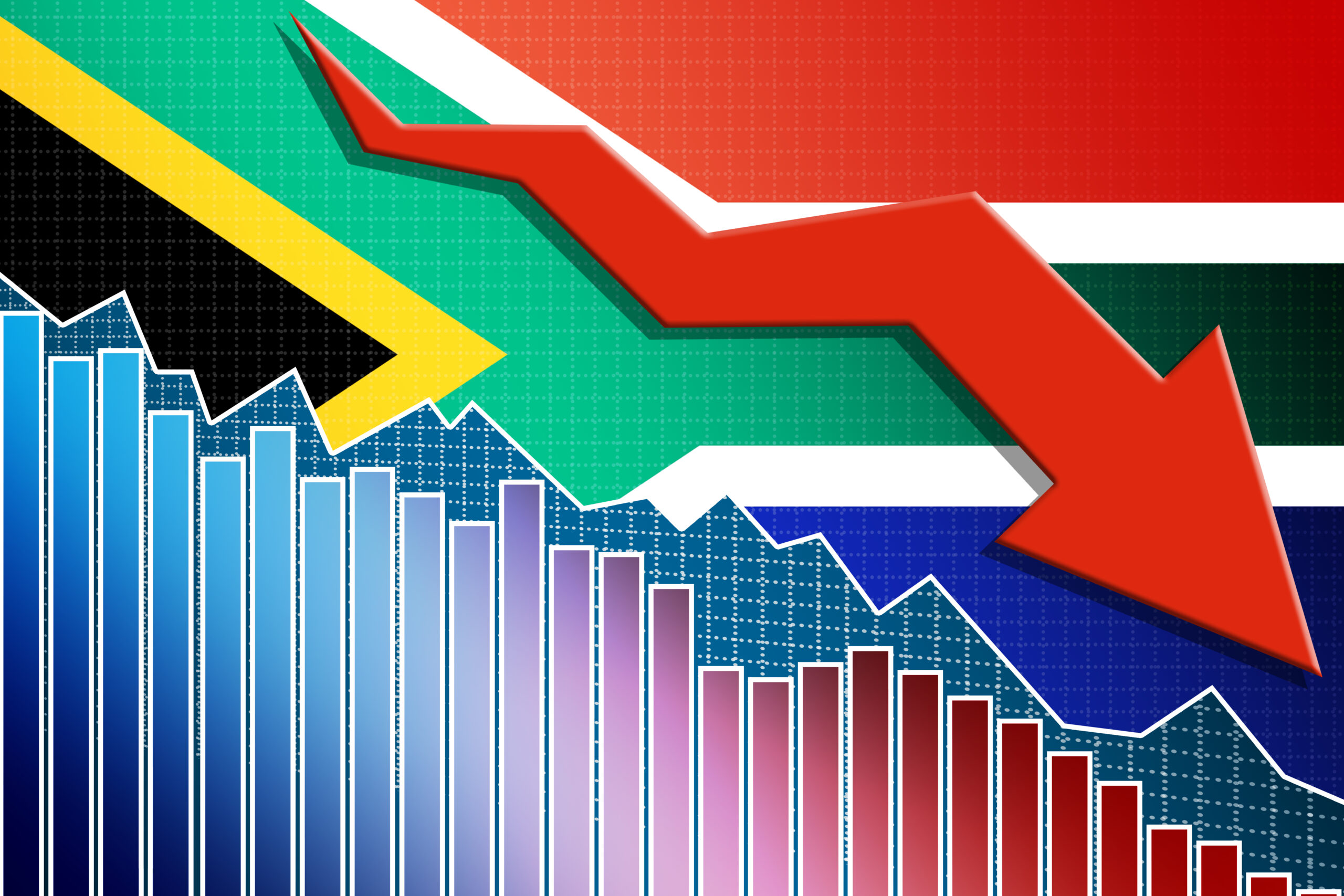Due to unique trade and domestic challenges faced by South Africa, it could soon lose its crown position as Africa's largest economy.
Azar Jammine, director and chief economist at Econometrix, highlighted this following the International Monetary Fund's decision to keep South Africa's 2025 growth forecast unchanged at just 1%.
This is while revising upward the outlook for several other sub-Saharan African economies, which Jammine described as a sobering signal that South Africa is possibly becoming the real laggard of the region.
The International Monetary Fund (IMF) has maintained its low growth forecasts for the country, predicting only 1% growth in 2025 and 1.3% in 2026.
This cautious outlook, reiterated in the recent World Economic Outlook, is a result of insufficient progress on critical structural reforms in sectors like logistics and energy.
These estimates reflect a 0.5 percentage point decrease since April, influenced by sluggish activity from key trading partners and increased US tariffs.
In contrast, the National Treasury forecasts growth of 1.4% in 2025 and 1.6% in 2026, while the South African Reserve Bank expects 1.2% in 2025, rising to 1.8% by 2027.
These differences underscore a worrying divergence between South Africa's economic performance and that of its sub-Saharan neighbours.
Jammine believes this reflects a mix of external pressures and internal weaknesses hitting South Africa's economy.
This includes the 30% tariff on South African exports to the United States which has now come into effect.
Jammine said that South Africa is "still in the dog box" as far as the United States goes.
Therefore the country has been penalised, when many other nations managed to negotiate agreements to reduce their tariffs.
He noted that the negative impacts are confined to the automotive and agricultural sectors, particularly citrus and table grapes.
"In the broader scheme of things, they do not account for a major part of the South African economy, but for those particular industries, the impact can be negative, and we could indeed see job losses."
However, Jammine stressed that the stagnant growth forecast is not just about trade penalties.
He added that another issue that has depressed sentiment is the fact that the police minister has been accused of indulging in corrupt practices.
"We know that one of the big constraints on South Africa's ability to improve its growth rate is its very high level of crime. The general sentiment towards the country may have deteriorated slightly as a consequence of that."
While energy supply issues have improved, Jammine said logistics remain a serious drag, compounded by crime.
Jammine said the biggest concern now is criminal activity, and the manner in which criminal syndicates and organised crime have proliferated is a big concern.
Against this backdrop, he believes the IMF's outlook is without a doubt a warning to investors to look elsewhere in Africa for growth.
"The one thing that emerged from this latest outlook that was particularly noticeable is the bigger upward revision in economic growth forecast for Nigeria," he said.
‘We're now looking at growth of closer to 4% for Africa's major competitor in terms of being the largest economy in Africa."
"There are other examples where growth is set to improve substantially. More generally, Sub-Saharan growth is forecast to be 4% this year and 4.3% next year, significantly higher than South Africa's 1%."
According to Jammine, countries like Nigeria, Kenya, and Ghana are creating far more friendly and enabling business environments, whereas South Africa is not.
"What other African countries are doing is allowing their economies to be freed up from government interference and introducing fairly innovative ways of doing business in each in their own right."
One of the big things that is so different from South Africa is that small businesses proliferate in many of these smaller economies.
"In South Africa, the economy is completely dominated by the so-called golden triangle of heavy government involvement, together with state-owned enterprises, powerful trade unions, and a very large concentration of power in large businesses," he said.
"Small businesses find it very difficult to access credit and to operate in an environment of heavy regulation, and this is stifling the ability to create jobs in a big way."
- Businesstech
 OK Zimbabwe posts US$17,8 million loss
OK Zimbabwe posts US$17,8 million loss  Hichilema meets Chivayo
Hichilema meets Chivayo  Millions celebrate Diwali festival in India
Millions celebrate Diwali festival in India  Econet Zimbabwe to delist from ZSE
Econet Zimbabwe to delist from ZSE  Gold edges up as traders await guidance
Gold edges up as traders await guidance  Mnangagwa fires Chitando, appoints Polite Kambamura
Mnangagwa fires Chitando, appoints Polite Kambamura  Young Investment Professional (YIP) Graduate Programme 2019
Young Investment Professional (YIP) Graduate Programme 2019 











 Young Investment Professional (YIP) Graduate Programme 2019
Young Investment Professional (YIP) Graduate Programme 2019
Editor's Pick